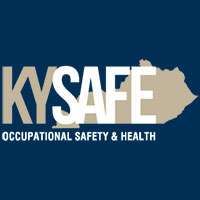By Greg Paeth
NKyTribune Senior Reporter
A brochure distributed for National College questions the motives of Kentucky Attorney General Jack Conway for launching and pursuing a court battle against the for-profit college.
Conway’s office sued National in 2011 over allegations the for-profit college has misled students by posting inflated job placement data.
The brochure contrasts National’s 128-year history with Conway’s. “Nothing has changed for National College,” the brochure says.
“Jack Conway, on the other hand, has run for three different offices in the past 12 years, and is now a candidate for governor. Draw your own conclusion as to his motivation for now attacking us,” according to a “Dear Friends” letter included in the brochure.
“His aspirations should not come at the expense of hard-working Kentuckians who are seeking to provide a better life for themselves and their families,” says the letter, which is signed by National College president Frank Longaker.
Gregg Hovious, an attorney for National, said he and the college believe that Conway filed the litigation to attract attention to himself as a political candidate.
“We believe it was done for political gain – for political reasons. It’s all about running for office,” Hovious said.
Conway, who is term-limited as attorney general, is expected to be the Democratic candidate for governor this fall, his third race in five years. Before Conway launched an investigation of proprietary colleges, including National, in late 2010, Conway had lost a U.S. Senate race to Rand Paul. In 2011, Conway won his second term as attorney general. He also ran unsuccessfully for Congress in 2002.
National paid to insert the brochure in some newspapers and mailed it to some “community leaders” last week in and around five of the six Kentucky cities where National has campuses, Longaker said.
“The main focus of the piece was to explain what we do, correct misperceptions about the (student loan) default rate and present an image of the college through the students and through the employers of those students,” Longaker said.
He declined to say how many of the brochures were delivered in the state. The college chose not to insert it in the Louisville Courier-Journal, the daily newspaper in the state’s largest city. National has campuses in Louisville, Florence, Lexington, Danville, Pikeville and Richmond in Kentucky. It has 25 locations in Indiana, Tennessee, Virginia, West Virginia and Ohio, including a location in Cincinnati.
When his investigation was announced in December 2010, Conway said the investigation would focus on what he labeled violations of the state’s Consumer Protection Act by six for-profit colleges.
The attorney general said he had issued subpoenas that “…require the schools to provide information about their student-loan default rates, advertising claims to prospective students, student recruitment practices, claims made about job placement, transferability of credits, how financial aid funds for students are managed and dispersed, organizational structure and accreditation claims.”
When Conway’s office sued National, the lawsuit alleged that the school had inflated its success rate for graduates who were able to find jobs in their fields. The Attorney General’s office contends the job placement rates on the National College website were considerably higher – often by 10 or more percent – than the placement rates that it reported to the agency that accredits for-profit colleges.
The lawsuit is scheduled for trial in September, according to Hovious, the Louisville attorney who is defending National in the case. The suit sought an injunction to prohibit National from engaging in unfair, false, deceptive and misleading trade practices as well as a fine of $2,000 for each “willful violation” of the Consumer Protection Act.
“There are wide discrepancies among different agencies and different colleges about how those (job placement) rates are determined,” Hovious said Monday when asked about the 2011 lawsuit.
“We don’t report placement rates to the accrediting agency. We furnish them with data,” Longaker said. Like Hovious, he said different agencies use different formulas to calculate whether former students have been successful in their job searches.
The lawsuit in which Hovious is defending National is distinct from litigation in which the college is challenging the validity of subpoenas for records that Conway sought in December 2010.
National originally refused to comply with the subpoena and later agreed to turn over the documents that had been requested. Last June, National was fined $147,000 for its failure to comply in a timely fashion with the subpoena. One of its law firms, Grasch Law of Lexington, was fined $10,000 for its role in the delay, the Attorney General’s office said.
Grasch Law did not return a call that asked for comment about the case.
Louisville attorney Mark Hurst is handling the appeal of the fine that was imposed against National last year. Hurst said he filed his case with the Kentucky Court of Appeals in mid-January and that the Attorney General’s office has 60 days to respond.
Allison Martin, communications director for the Attorney General’s office, said the material distributed by National was comparing “apples and oranges” because Conway’s lawsuit zeroes in on job placement data for students who attended National College.
Most of the material in the brochure deals with the default rate on federally insured student loans.
She stressed that Conway’s concerns about National and some other for-profit schools focus on misrepresenting job placement data. “This is not about (student loan) default rates. This is about lying to students to get them in the door,” she said.
The brochure lists default rates at 25 colleges and universities throughout the state, including Northern Kentucky University and Gateway Community and Technical College, which has campuses in Kenton and Boone counties.
During his investigation, Conway raised questions about student loan default rates at for-profit schools. The brochure says National’s default rate of 10.5 percent is one of the lowest in the state and some 7 percentage points below the state’s 17.5 percent average.
National College, which has a location 8095 Connector Dr. in Florence, has the fifth best default rate in the state behind the University of Kentucky (7.2 percent), the University of Louisville (9.6), Northern Kentucky University (9.9) and Murray State (10.2), according to U.S. Department of Education data distributed by the school.
Gateway Community and Technical College had a default rate of 32.5 percent, second highest in the state, according to the brochure, which used information from the U.S. Department of Education, which releases default rate information every September. The 32.5 rate was made public in September, 2014.
Schools that have default rates of more than 30 percent for three successive years can lose their eligibility for students to participate in some federally guaranteed loan programs. Gateway barely avoided two successive years of hitting that 30 percent threshold because its default rate released in September of 2013 was 29.5 percent, which was about two points worse than the rate of 27.7 that was reported in 2012.
National’s brochure hammers at Conway for investigating National while avoiding any mention of public colleges and universities and their higher default rates. “AG (Attorney General) Conway has taken to task a handful of private colleges – including National College – for ‘high default rates,’” the National material says on its front page. “This has led some to ask why his office has yet to take any action against public colleges, despite several such colleges being clearly in danger of losing access to federal financial aid programs for their students.”
In one of the many press releases he has issued in this case, Conway said he began investigating the colleges after his office received complaints from former students.
“I want to make sure these institutions are as interested in educating their students as they are in collecting federal loan money,” Conway said in one media statement. “I want to make sure students aren’t being misled and left owing tens of thousands of dollars in student loans for credits that don’t transfer or a degree that will not benefit them.”
The high default rates at Gateway over the past three years were addressed by
Dr. G. Edward Hughes, president and CEO of the school, during a recent interview.
He pointed out that there is a gap of about three years between the time a student is supposed to begin repaying a loan and when it is considered to be in default. The rate released in 2012, for example, would reflect repayment data for students who would have entered Gateway in the fall of the 2009-10 academic year.
In a report released last September, Hughes outlined a long list of steps that have been taken to address the issue, including the creation of a “default management team.” He also pointed out that schools like Gateway experience higher default rates “…because we serve a disproportionately higher rate of students from financially challenged situations.”
Somerset Community College had the highest default rate in the state at 33.3 percent last year.
National College in Florence offers eight programs for students seeking associate degrees and 12 for students seeking a diploma in fields that include accounting, business administration and medical office professional. About 80 students are enrolled in about 24 different classes, according to Amy Brown, the campus director.
National is accredited by the Accrediting Council for Independent Colleges and is licensed in Kentucky by the Kentucky Council on Postsecondary Education. Brown said online courses are not available at the Florence campus.
Images: From the National College brochure




















